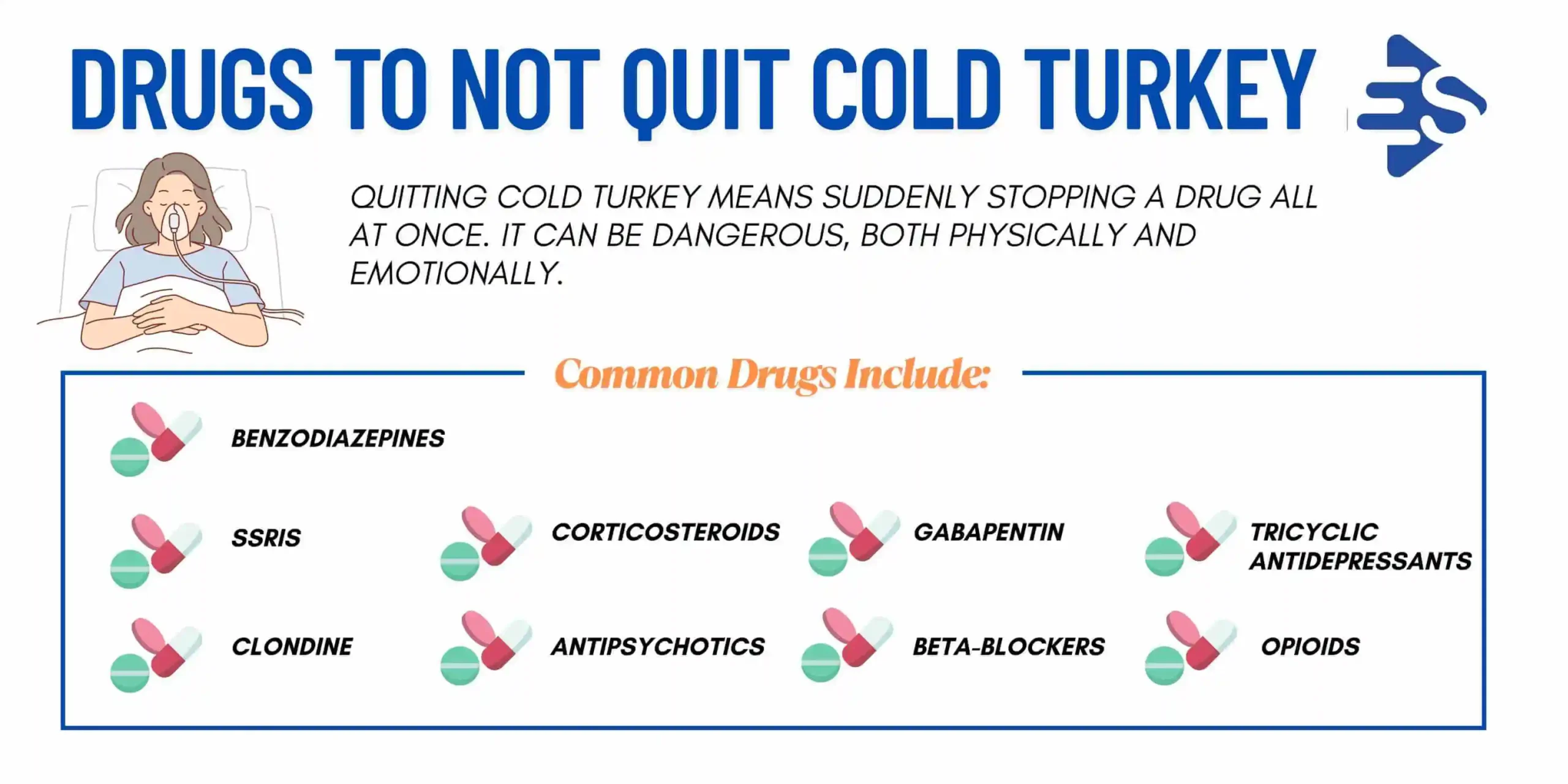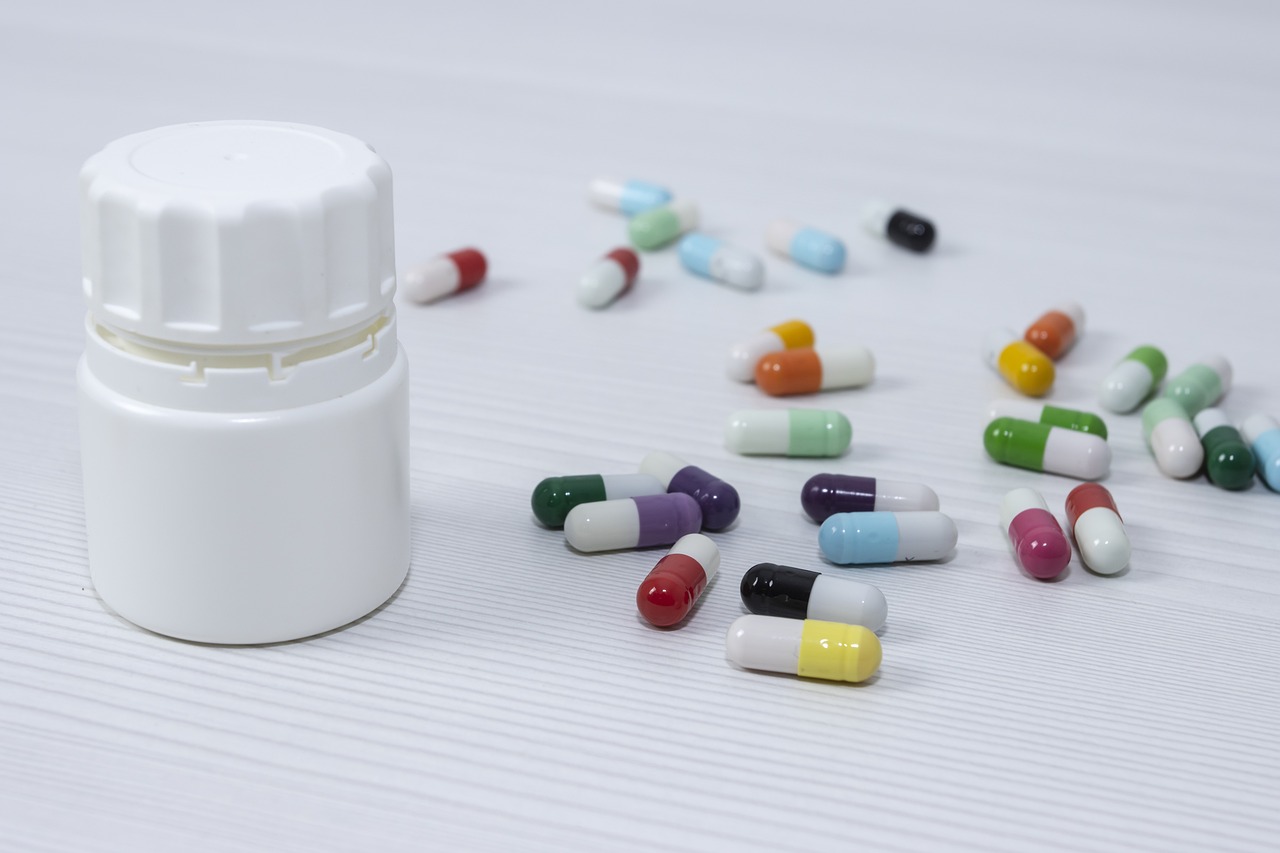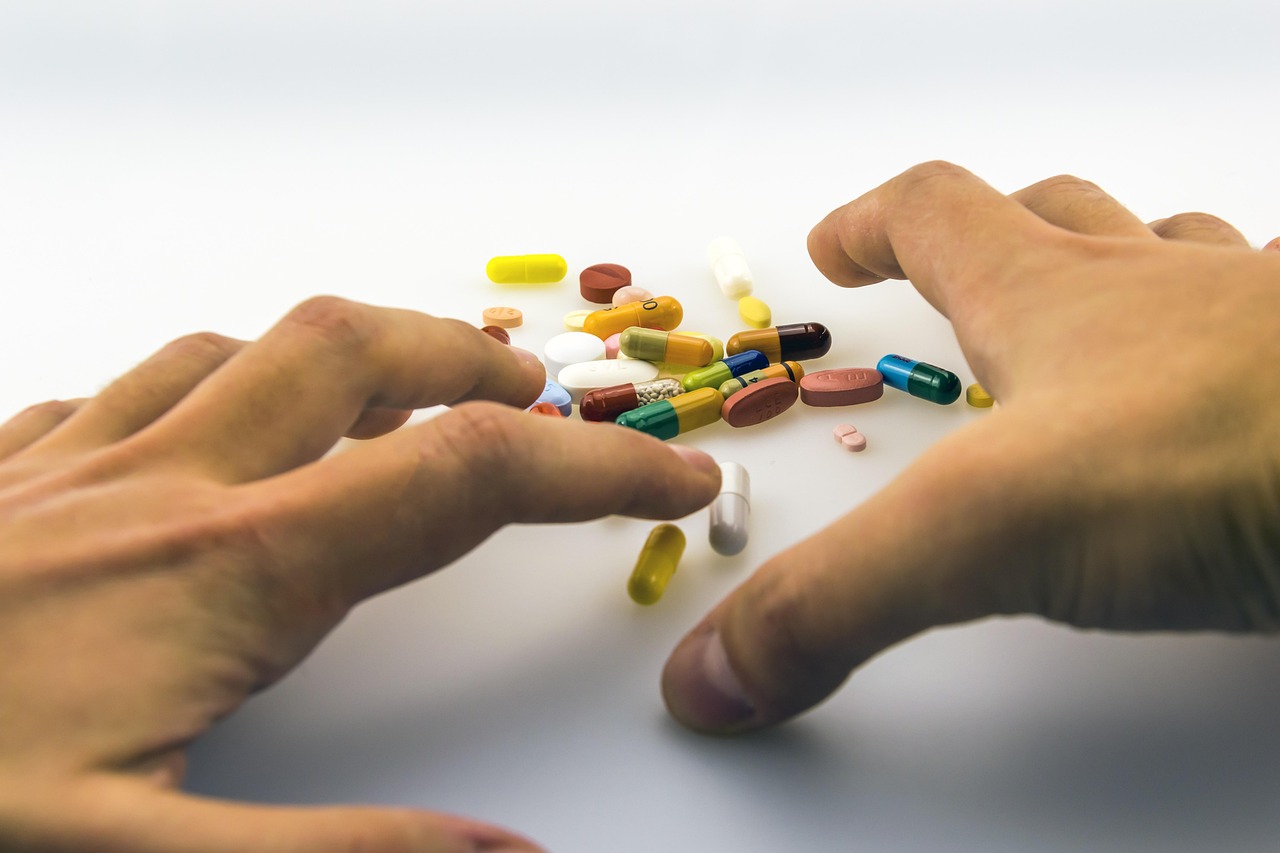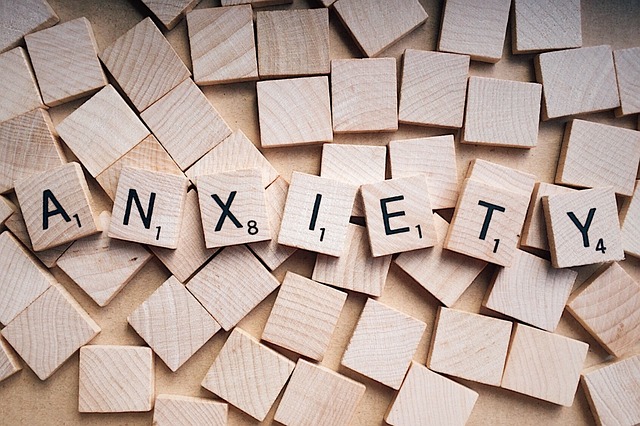 What drugs cannot be stopped abruptly?
What drugs cannot be stopped abruptly?
Some medications should never be stopped suddenly because they can cause severe withdrawal or health risks. These include antidepressants, anti-anxiety meds, antipsychotics, heart medications, seizure drugs, opioids, steroids, and hormone treatments. Stopping them too fast can lead to mood swings, seizures, high blood pressure, or other dangerous effects.
What’s the hardest drug to quit?
The hardest drug to quit depends on the person. Still, heroin and fentanyl (opioids) are often considered the most difficult due to intense cravings, painful withdrawal, and a high relapse rate.
Which drugs are most likely to produce withdrawal symptoms?
These include:
- Opioids (Heroin, Fentanyl, Oxycodone, Morphine) – Severe flu-like symptoms, pain, cravings, and anxiety.
- Benzodiazepines (Xanax, Valium, Ativan) – Dangerous withdrawal with seizures, panic attacks, and insomnia.
- Alcohol – Individuals can experience seizures and delirium tremens (DTs).
- Nicotine – Irritability, cravings, restlessness, and insomnia.
- Stimulants (Cocaine, Meth, Adderall) – Depression, fatigue, and intense cravings.
What are the top 3 addictions?
The top three most common addictions are nicotine, alcohol, and opioids. Nicotine (from smoking or vaping) hooks people fast and makes quitting tough due to cravings and irritability. Alcohol is globally accepted but can be highly addictive.
Opioids, like heroin and painkillers, are some of the hardest to quit, with intense cravings and a high risk of overdose. These addictions can take over lives, but recovery is always possible with the proper support.
Which drug is used to block withdrawal symptoms?
Several drugs can help block withdrawal symptoms depending on the substance. For opioid withdrawal, Methadone and Buprenorphine (Suboxone) reduce cravings and pain. Benzodiazepines like Diazepam help with alcohol withdrawal, preventing seizures and anxiety.
For benzodiazepine withdrawal, tapering with longer-acting options like Diazepam is common. While there are no FDA-approved meds for stimulant withdrawal, drugs like Modafinil and Bupropion may help manage symptoms.

1) Benzodiazepines
Benzodiazepines, often prescribed for anxiety and insomnia, and Medications like Valium, Xanax, and Ativan fall into this category. Withdrawal symptoms may include anxiety, tremors, and even seizures. These can be life-threatening in some cases.
Users should always follow medical guidance when coming off benzodiazepines. Doctors often recommend gradually reducing the dosage rather than quitting “cold turkey.”
2) Selective Serotonin Reuptake Inhibitors (SSRIs)
Selective Serotonin Reuptake Inhibitors (SSRIs) are a class of antidepressants commonly prescribed to treat depression and anxiety. They work by increasing serotonin levels in the brain, which can improve mood and emotional balance. SSRIs are popular because they are generally considered safe and have fewer side effects compared to other antidepressants.
3) Corticosteroids
Corticosteroids are medications often prescribed to treat conditions such as asthma, arthritis, and allergies. They reduce inflammation and suppress the immune system. When someone has been using corticosteroids for an extended period, their body becomes accustomed to the medication.
Moreover, quitting corticosteroids without gradually reducing the dose can result in an adrenal crisis. This occurs because the body may not produce enough natural steroid hormones. Symptoms of an adrenal crisis include severe fatigue, dizziness, and low blood pressure.
4) Antipsychotics
These medications help manage conditions like schizophrenia and bipolar disorder. When someone stops taking antipsychotics without tapering, they might experience issues such as insomnia, agitation, and anxiety. In severe cases, patients might face hallucinations or delusions, conditions these drugs are meant to control.
5) Gabapentin (Neurontin)
Gabapentin is often prescribed for nerve pain and seizures. Individuals can enter withdrawal and experience unpleasant symptoms if it is stopped suddenly. These symptoms might include anxiety, insomnia, nausea, and increased pain.

6) Beta-blockers
Beta-blockers are prescribed for conditions such as high blood pressure, heart issues, and migraines. These drugs work by blocking the effects of adrenaline, which helps slow the heart rate and reduce blood pressure.
Beta-blockers are crucial for managing heart conditions and can improve overall heart function
7) Tricyclic Antidepressants
Tricyclic antidepressants (TCAs) are a class of medication used to treat depression and other mood disorders. Stopping this medication can produce symptoms of nausea, headaches and dizziness.
TCAs work by balancing chemicals in the brain. Tapering plans are crucial to eliminate unpleasant symptoms associated with withdrawal.
8) Opioids
Opioids are potent drugs often used for pain relief. They can be highly addictive, leading to severe physical dependence and emotional damage.
Withdrawal can include nausea, vomiting, diarrhoea, and muscle pain. These symptoms can be very uncomfortable and hard to manage alone. In some cases, they may require supervised detoxification.
Long-lasting opioids like methadone require careful medical supervision when discontinuing. Tapering off the drug under a doctor’s care is crucial to managing withdrawal symptoms safely.
9) Clondine
Clonidine is a medication that lowers blood pressure, but it’s also used to help with withdrawal symptoms from drugs like opioids. It works by calming the nervous system.
Understanding the Risks
Quitting certain drugs suddenly can lead to serious health issues and emotional challenges. The effects can be physical and psychological, making it essential to approach the situation cautiously.
Psychological Impact
An individual’s psychological state of mind can be severely impaired by stopping medications unexpectedly or abusing them. Extended abuse can lead to the development of mental health disorders.
A lack of professional support during this period exacerbates these feelings. Therapeutic interventions or support groups can provide essential coping strategies and emotional support. A structured approach with medical guidance can help manage mental health challenges, offering a stable environment for recovery.

Consulting Healthcare Professionals
Seeking advice from healthcare professionals is crucial when deciding to stop using certain drugs. These experts provide the necessary support to ensure a safe detox from drugs.
Role of Medical Guidance
Healthcare professionals play a critical role in safely managing drug withdrawal. They possess the expertise to assess an individual’s health and addiction history, allowing them to tailor a withdrawal plan that minimises risks.
Medical guidance ensures that individuals have access to necessary medications that can ease withdrawal symptoms. In many cases, healthcare providers may prescribe medications to manage pain, cravings, or anxiety related to withdrawal. This supervision is essential for ensuring the individual’s safety and comfort.
Developing a Tapering Plan
A planned approach to reducing drug intake, known as tapering, is often recommended instead of quitting cold turkey. This plan involves gradually decreasing the drug dosage over time, which helps to alleviate withdrawal symptoms and reduce the risk of relapse.
Tapering schedules vary based on factors such as the type of drug, duration of use, and the individual’s health status. This method gives individuals a structured recovery path that supports their physical and psychological well-being. A tailored tapering plan is key to achieving a successful and sustainable transition away from drug dependence.


